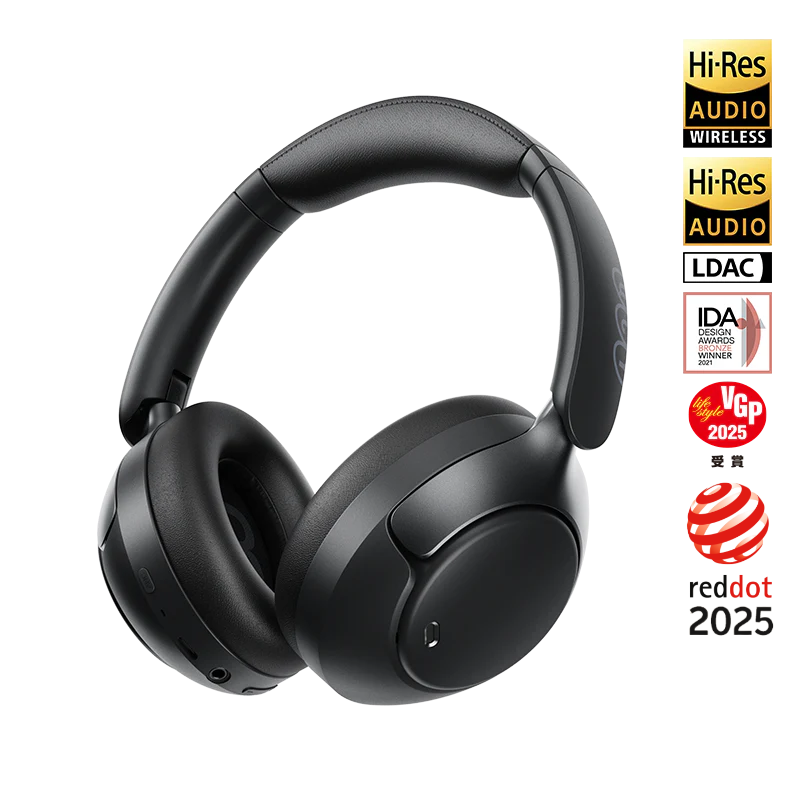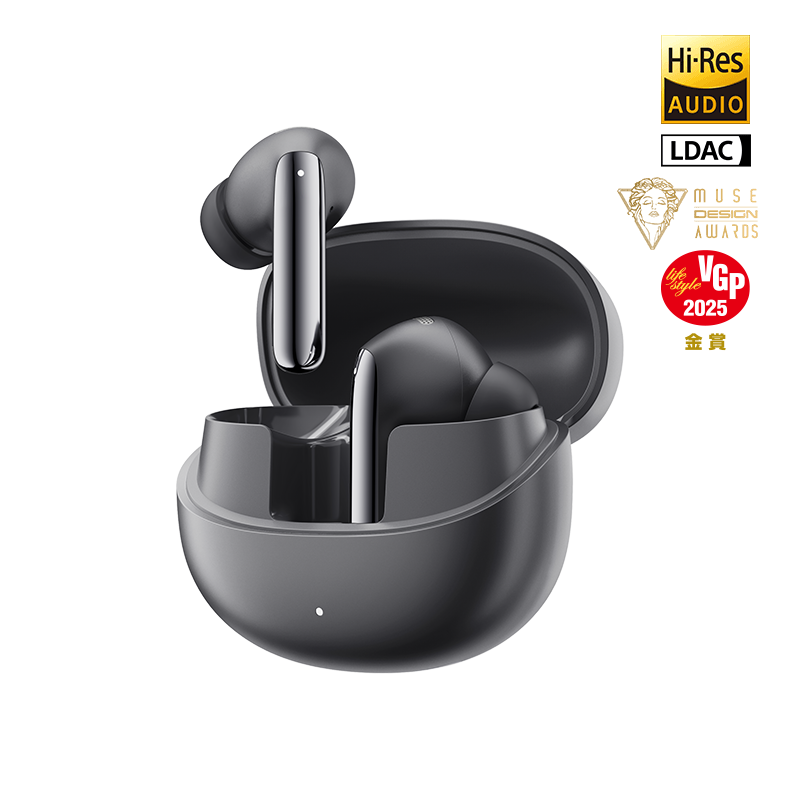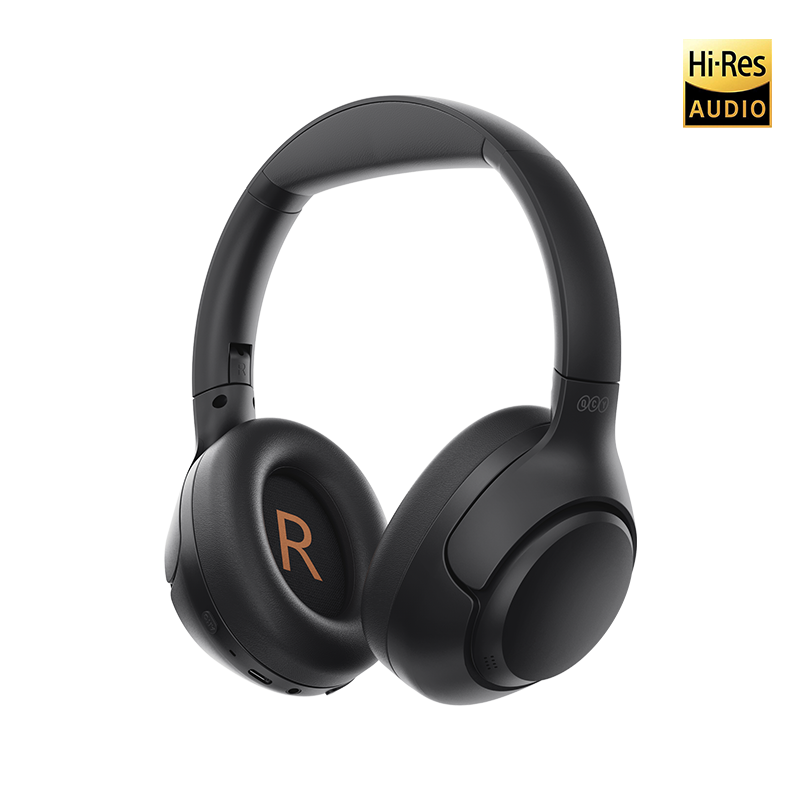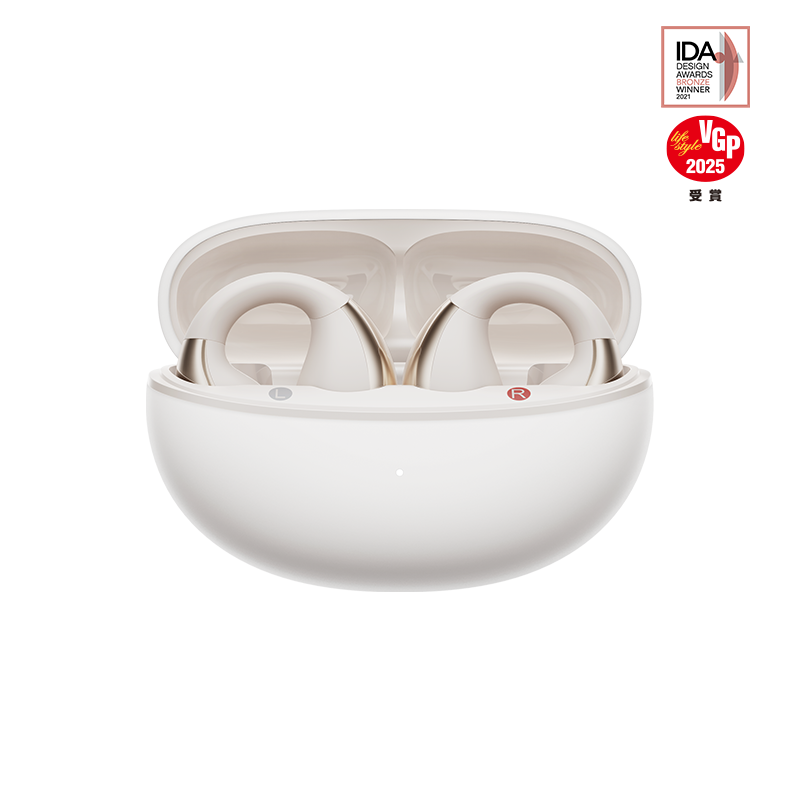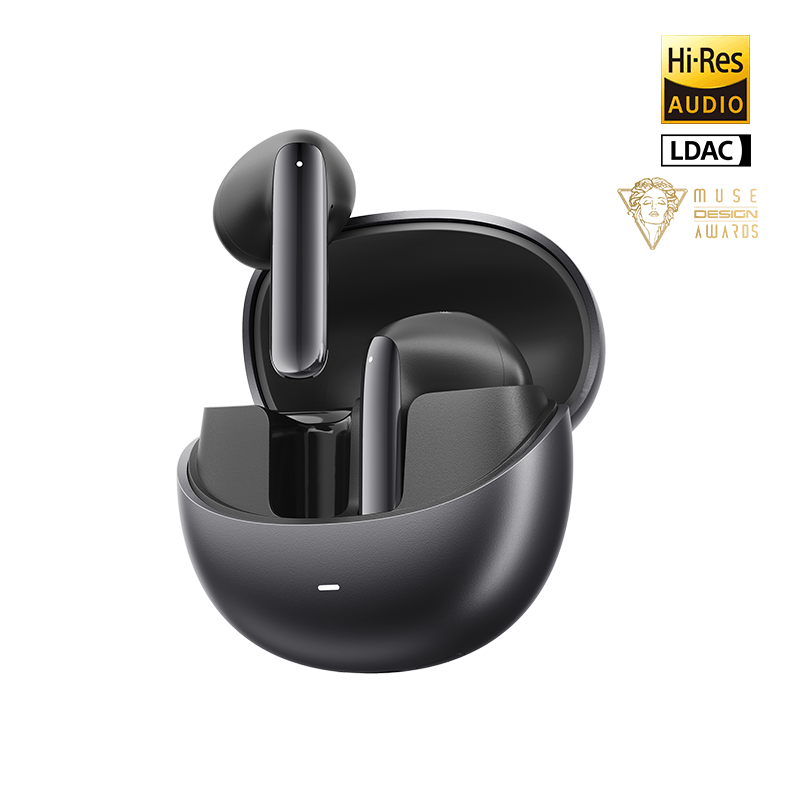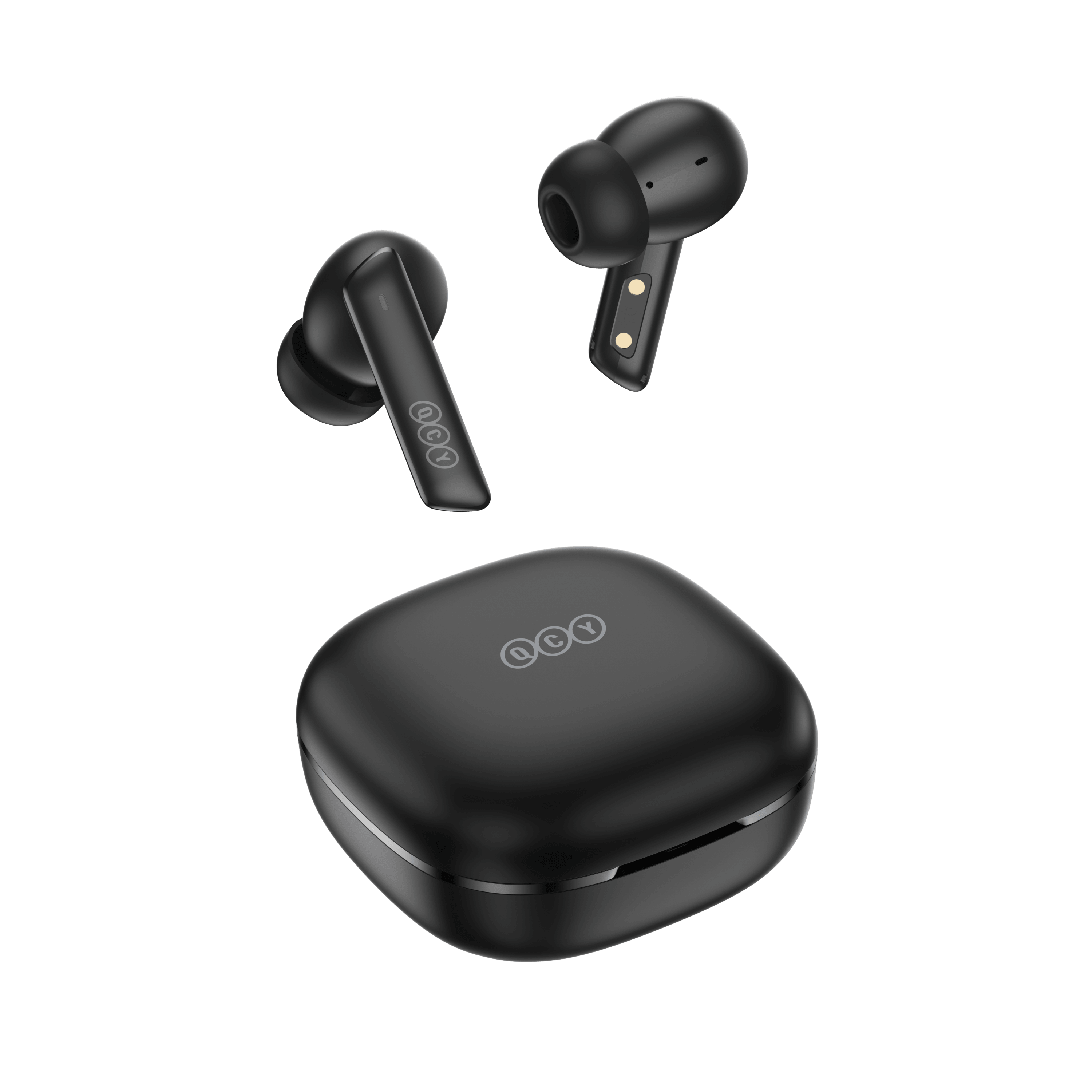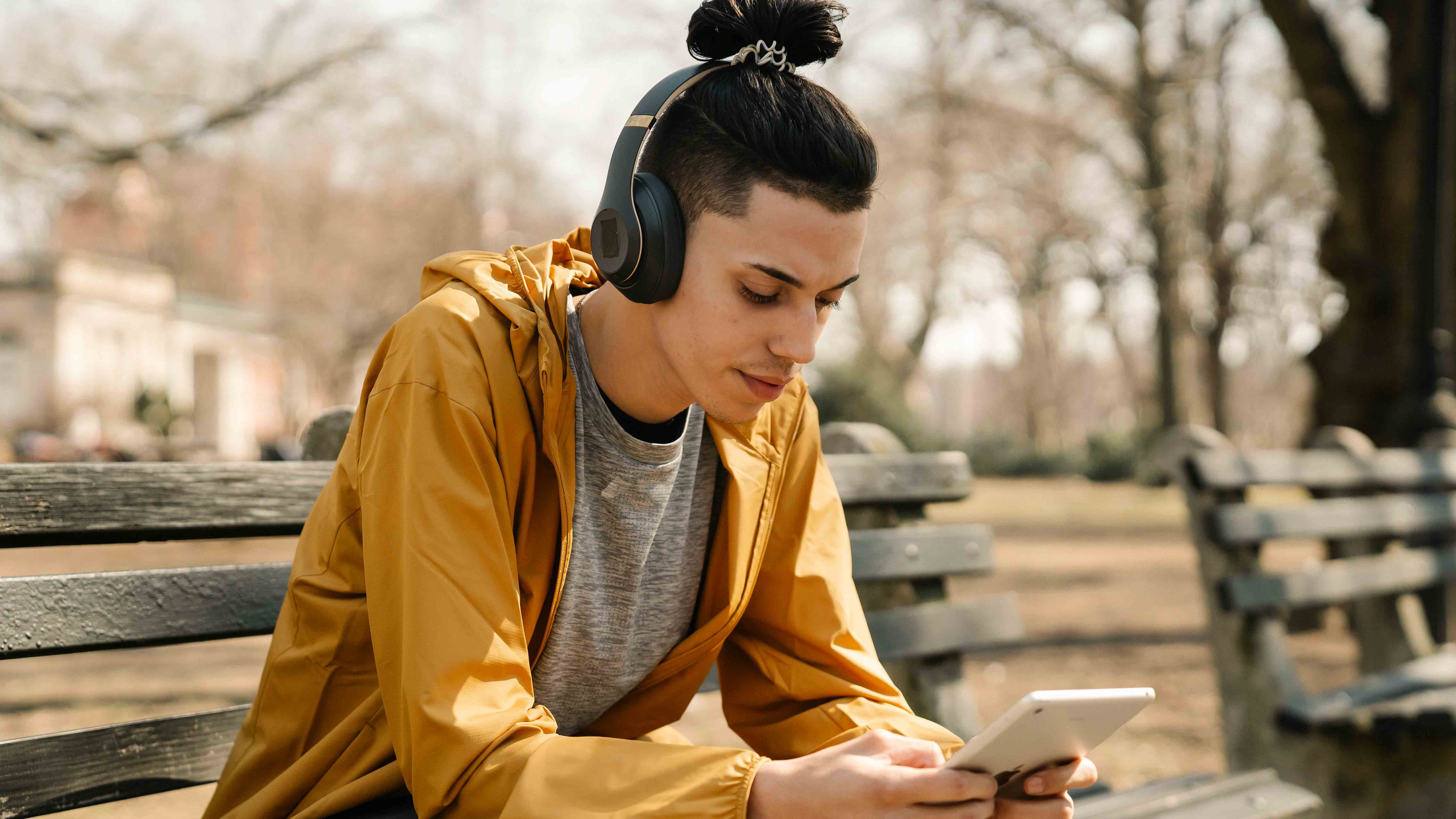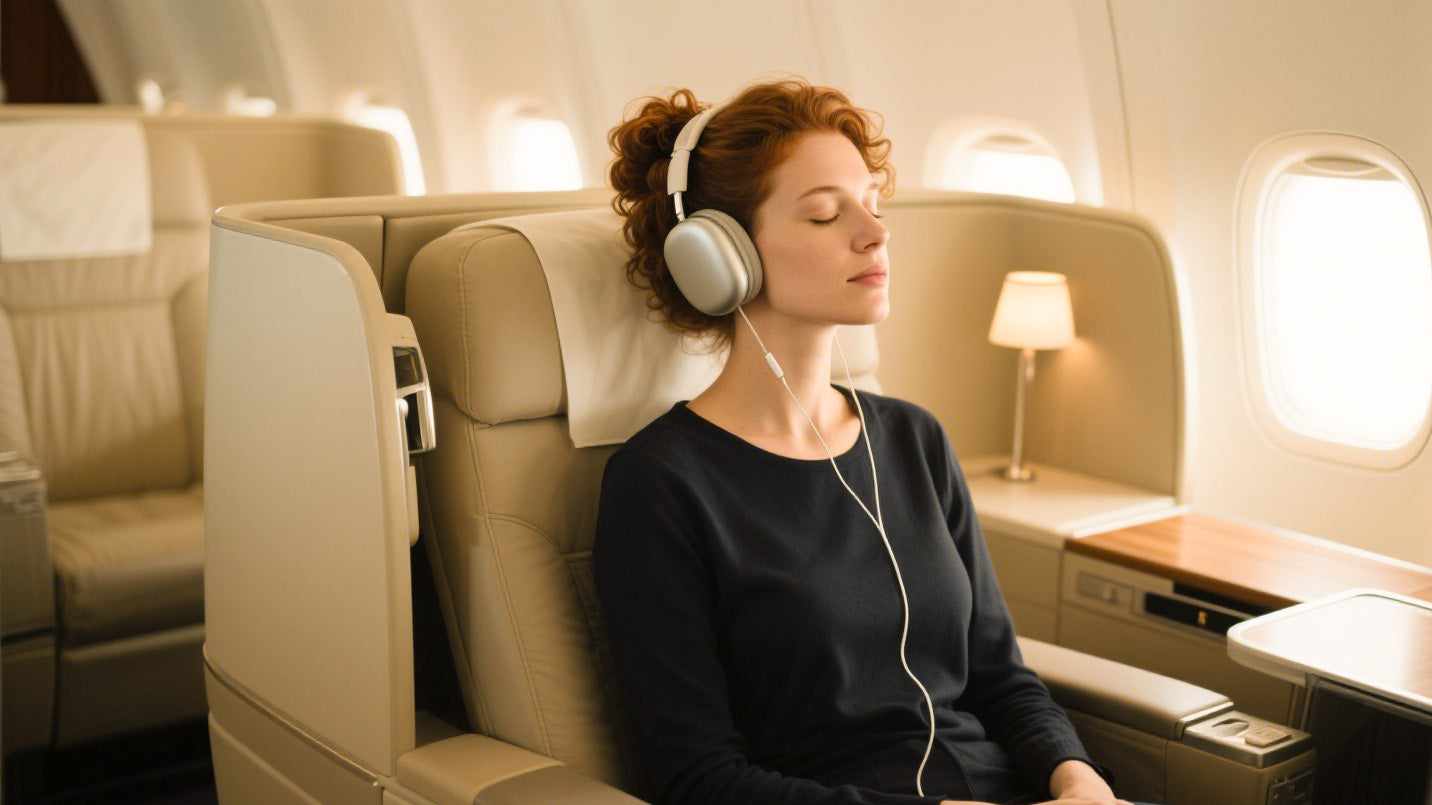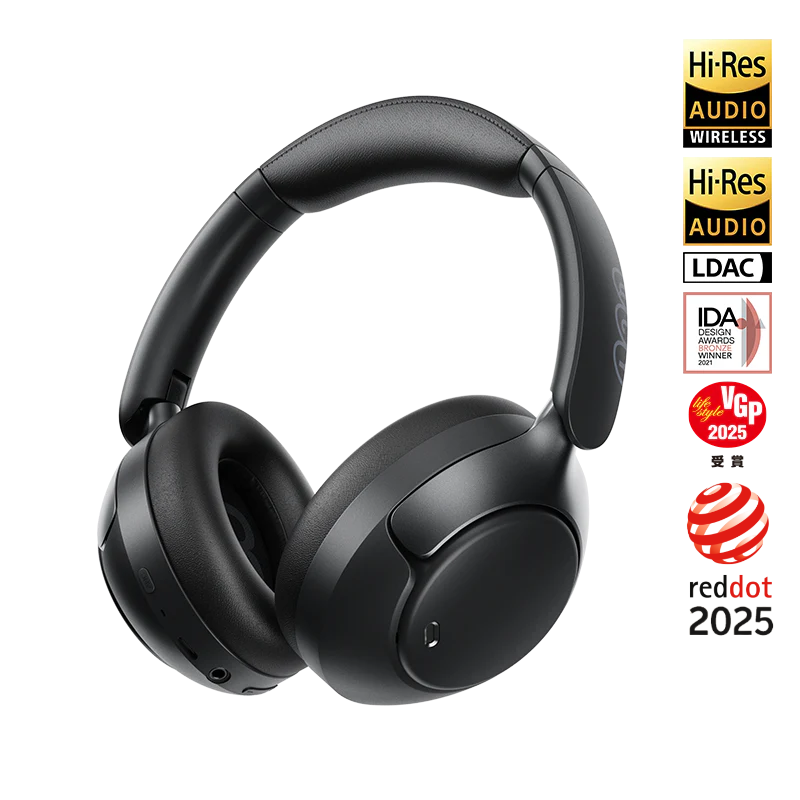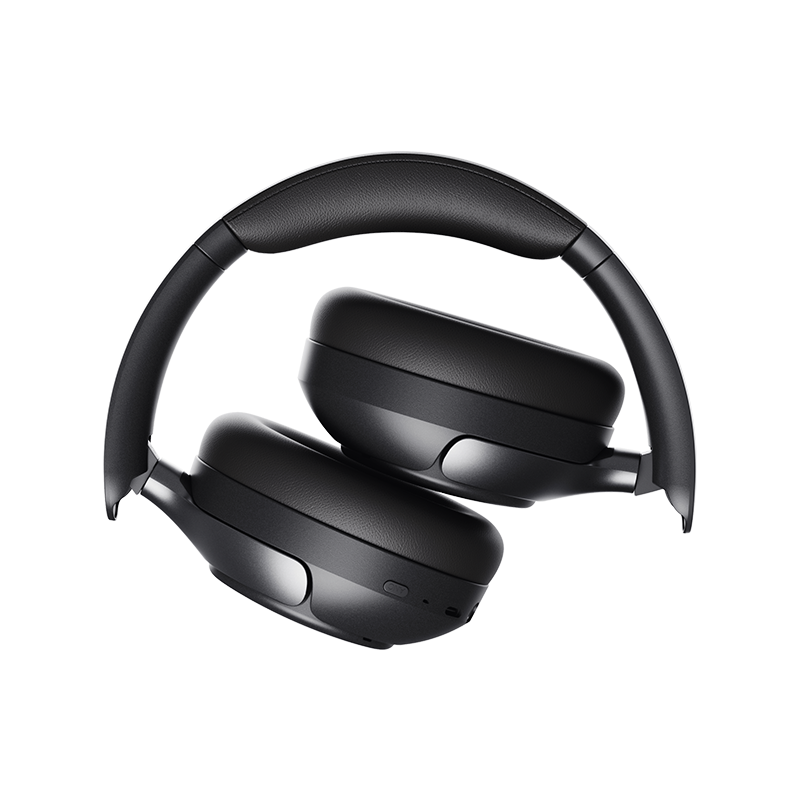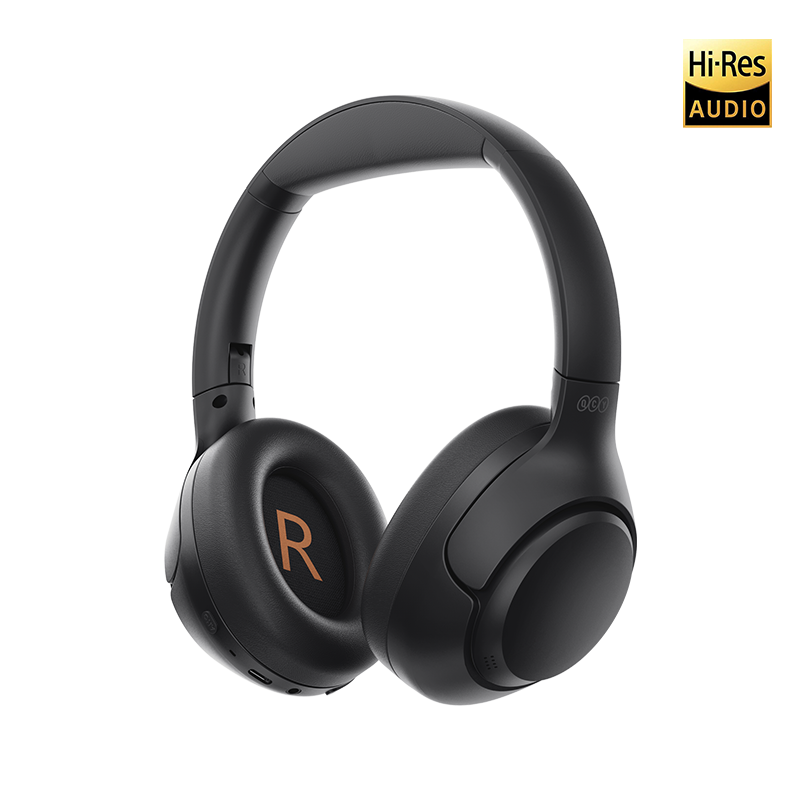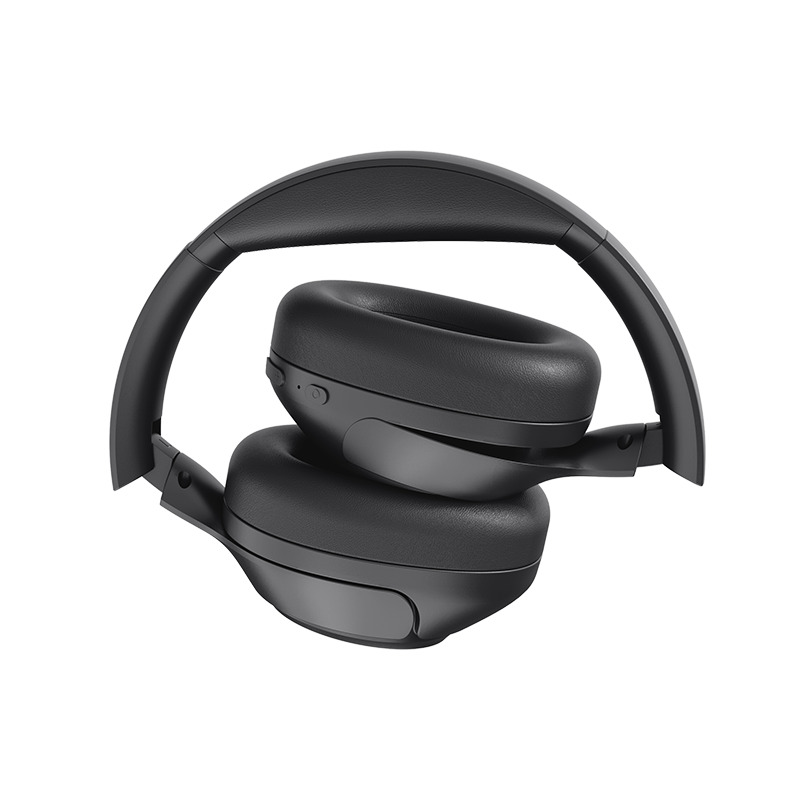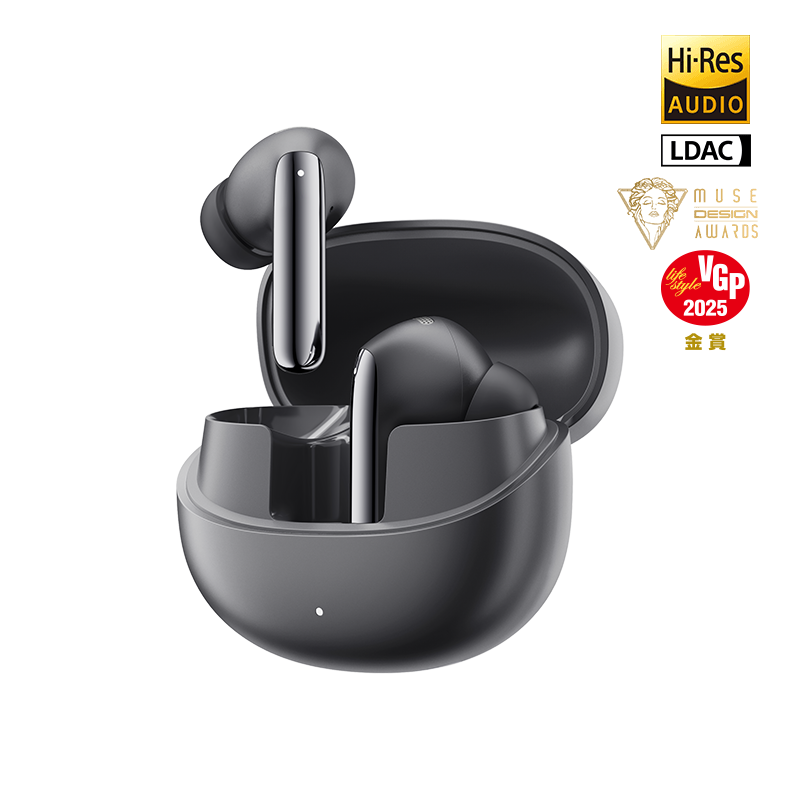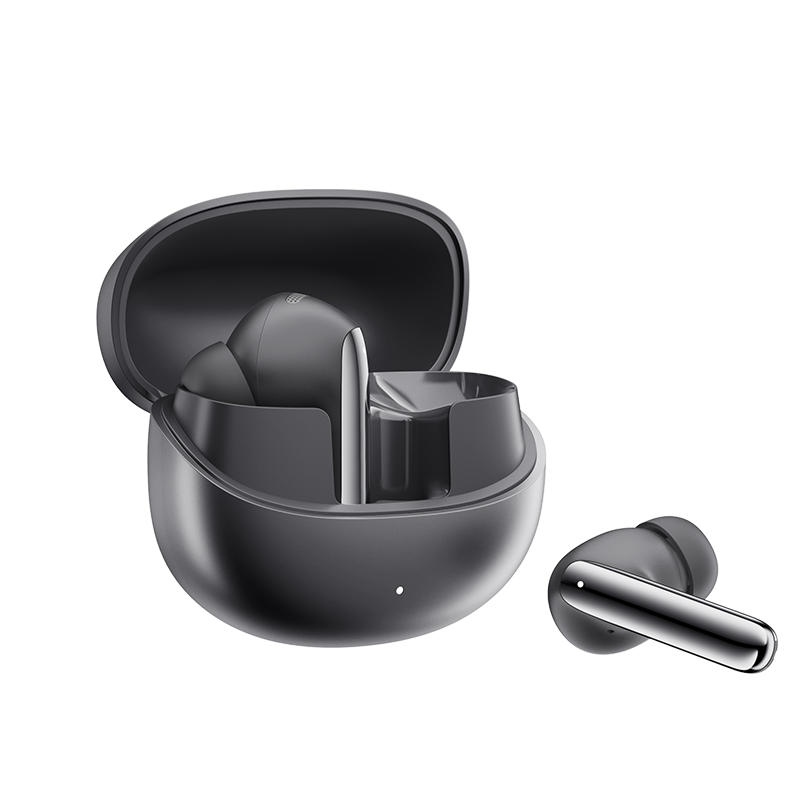
- 1. Introduction
- 2. What Is Noise Cancelling Technology?
- 3. Types of Noise Cancelling: Passive vs Active
- 4. Is Noise Cancelling Harmful to Your Hearing?
- 5. The Science: How ANC Affects the Ear
- 6. Common Misconceptions About ANC
- 7. Benefits of Using Noise Cancelling Headphones
- 8. Situations Where ANC Might Cause Discomfort
- 9. Tips for Safe Listening with ANC
- 10. QCY’s Approach to Safe ANC Technology
- 11. Final Verdict
1. Introduction
Noise cancelling headphones are now a staple for commuters, remote workers, travelers, and students alike. The ability to block out environmental noise is no longer a luxury—it's often a necessity. But alongside the rise in popularity, one question remains common: Is noise cancelling bad for your ears?
Let’s dive into the science, bust some myths, and explore how you can use noise cancelling (ANC) headphones safely—while enjoying every beat.
2. What Is Noise Cancelling Technology?
At its core, noise cancelling aims to reduce unwanted ambient sound using built-in microphone technology and signal processing.
- Passive Noise Cancellation: This refers to the physical design of headphones—ear cups that seal tightly around your ears to block outside sound.
- Active Noise Cancellation (ANC): A technology that uses microphones to detect external noise and generate anti-noise soundwaves to cancel them out.
ANC works best with consistent, low-frequency sounds like airplane engines, air conditioning, or traffic noise.
3. Types of Noise Cancelling: Passive vs Active
| Type | Description | Effectiveness | Risk to Ears |
|---|---|---|---|
| Passive | Blocks sound physically | High (high frequencies) | Very low |
| Active (ANC) | Uses anti-noise tech | High (low frequencies) | Minimal (if used properly) |
Active Noise Cancelling doesn’t increase volume to block noise—it reduces the noise itself, which is often healthier than turning up your music to drown out sounds.
4. Is Noise Cancelling Harmful to Your Hearing?
The short answer: No, ANC is not inherently harmful to your ears.
ANC technology does not emit harmful radiation, does not apply pressure directly on your eardrum, and does not damage your hearing—as long as the volume of your music is kept at a safe level.
Most discomforts attributed to ANC headphones (such as ear pressure, dizziness, or mild headaches) are temporary and vary from person to person.
5. The Science: How ANC Affects the Ear
ANC generates sound waves that are the inverse of ambient noise. These sound waves cancel out external noise through a process called destructive interference.
- There is no direct physical impact on your ear canal or eardrum.
- The effect is more about brain perception than physical pressure.
However, some users report a sensation of ear “pressure”. This is due to the brain perceiving an absence of low-frequency sound as an unnatural environment. It’s similar to what you might feel in an airplane cabin, though no actual pressure is being applied.
6. Common Misconceptions About ANC
Let’s bust a few myths:-
❌ Myth 1: ANC damages hearing over time
✅ Truth: Listening at high volumes damages hearing—not ANC itself. -
❌ Myth 2: ANC creates harmful pressure in your ears
✅ Truth: The “pressure” sensation is psychological, not physical. -
❌ Myth 3: ANC emits harmful EMFs (electromagnetic fields)
✅ Truth: ANC uses safe electronic components—far below any dangerous threshold. -
❌ Myth 4: ANC is worse than turning up your volume
✅ Truth: ANC lets you listen at lower volumes—protecting your ears in the long run.
7. Benefits of Using Noise Cancelling Headphones
- When used correctly, ANC can protect your hearing, not damage it.
- Lower Listening Volumes: You don’t have to blast your music to hear it clearly.
- Focus and Productivity: Great for studying or working in noisy environments.
- Reduced Stress: Blocking unwanted noise lowers cortisol levels and enhances calm.
- Improved Sleep and Travel Comfort: ANC helps on planes, trains, or when you need a nap.
✔ Recommended: QCY H3 Pro
With adaptive hybrid ANC up to 50dB, the QCY H3 Pro lets you immerse in music without raising the volume—perfect for long-haul flights or focused work sessions.
8. Situations Where ANC Might Cause Discomfort
While ANC is safe, some users may experience mild side effects:- Ear Pressure Sensation: More common among first-time users
- Dizziness or Nausea: Rare, but some users with vestibular sensitivity report discomfort
- Overuse Fatigue: Wearing ANC headphones for many hours without a break
Tip: If you feel dizzy or uncomfortable, turn off ANC or switch to Transparency Mode to let ambient sound back in.
9. Tips for Safe Listening with ANC
- Here’s how to make the most of your noise cancelling headphones—safely:
-
Keep Volume Below 60%
WHO recommends keeping listening levels below 85 dB. Use ANC to avoid needing to go louder. -
Take Listening Breaks
Every 60 minutes, take a 5-minute break to give your ears a rest. -
Use Transparency Mode in Busy Streets
For safety when jogging or biking outdoors, allow ambient noise in. -
Don’t Sleep with Loud ANC
Some people use ANC to fall asleep, which is fine—just ensure the volume is low. -
Choose the Right Fit
Ill-fitting earbuds or headphones can cause physical discomfort. Try ergonomic designs.
-
Keep Volume Below 60%
10. QCY’s Approach to Safe ANC Technology
At QCY, we design earphones that prioritize comfort, safety, and listening quality. Our ANC models are equipped with intelligent features that give users full control.⭐ QCY H3 Pro:
- Adaptive Hybrid ANC up to 50dB
- Hi-Res Audio + LDAC
- 3-Mic ENC for clear calls
- Bluetooth 5.4 + AUX cable
- Wired or wireless flexibility
⭐ QCY H3:
- 43dB ANC
- Hi-Res Certified
- 40mm Titanium Drivers
- 60H Battery Life
- Transparency Mode
⭐ QCY MeloBuds Pro:
- Adaptive ANC + 6 awareness levels
- 360° Stereo Sound
- LDAC + Smart Wearing Detection
- Up to 34H Playtime
- Dual Device Connection
These models empower users to customize their ANC levels, switch to Awareness Mode, and enjoy lossless audio without putting their hearing at risk.
11. Final Verdict
So, is noise cancelling bad for your ears? No. In fact, when used wisely, ANC can protect your ears by reducing the need for higher volume levels.
Like any technology, how you use it matters more than the technology itself. When paired with safe listening habits, ANC headphones become a powerful tool for both audio enjoyment and hearing protection.
If you're looking for noise cancelling headphones that strike the right balance between innovation, safety, and sound quality—QCY has your ears covered.
Ready to experience intelligent ANC?
👉 Explore the full QCY range of noise cancelling headphones at qcy.com











